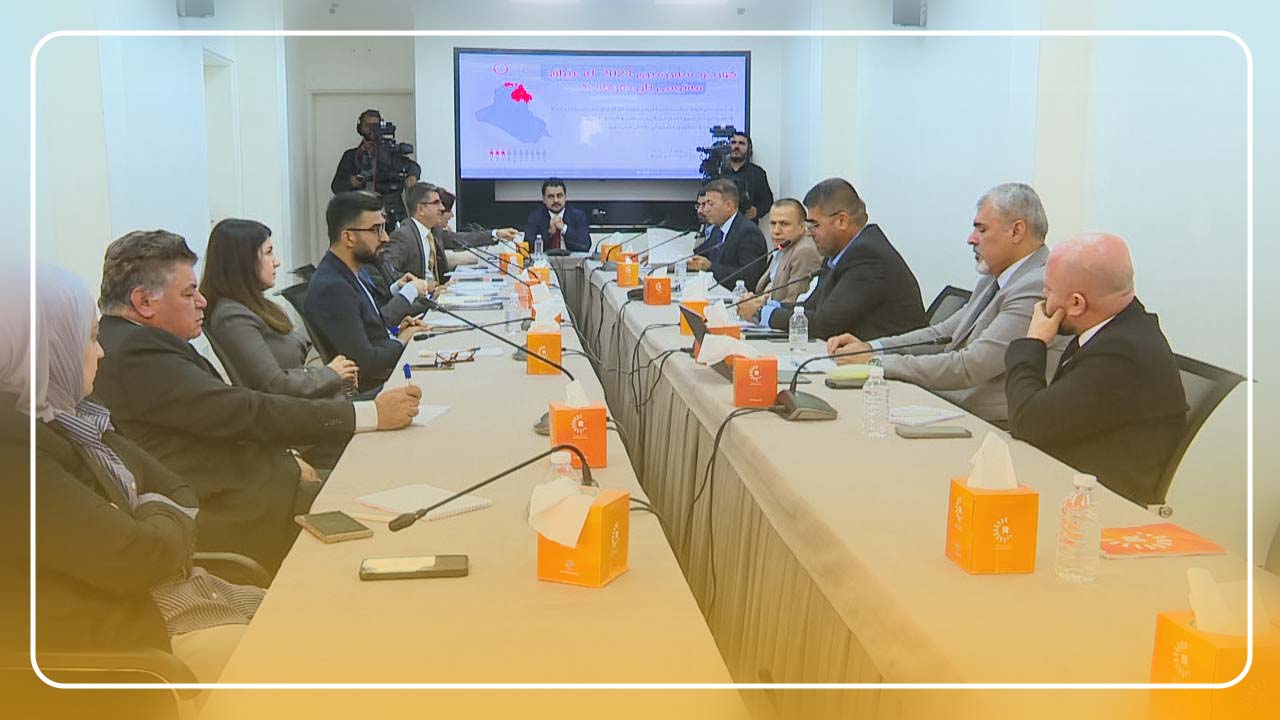On Wednesday, November 6, 2024, the Rudaw Research Center hosted a roundtable discussion titled "The 2024 Census in Iraq: A Turning Point for Kurds – Risk or Opportunity?". The event brought together a diverse group of participants, including university professors, statistics and data experts, and representatives from political parties in Erbil.
The roundtable focused on three key topics related to the upcoming nationwide population census, scheduled for November 20, 2024. The census will be conducted across all provinces of Iraq, including the Kurdistan Region and territories currently outside the administrative control of the Kurdistan Regional Government.
The first theme focused on the positions of political parties in the Kurdistan Region regarding the census. The second explored the potential political and economic impacts on the Kurdistan Region following the census, including its political influence, general budget allocation, and share of Iraq’s provincial development budget. The third theme examined the transparency and future use of census data, with experts discussing the risks and possibilities of data manipulation.
Parwin Fatih, a member of the Kirkuk Provincial Council, highlighted that Iraq has not conducted a census since 1997, and the last census in the Kurdistan Region dates back to 1987 when there was no official Kurdish government to advocate for Kurdish rights. She emphasized that the current Kurdish government now has the capacity to defend the nation's interests. As a result, at the Kurds' request, the Iraqi government has agreed to use the 1957 census as the basis for the 2024 census, considering it the most accurate. This decision reflects the central government's commitment to the agreement, done on this issue, between Iraq's Ministry of Planning and the Kurdistan Ministry of Planning. While this move is promising, Parwin Fatih expressed concern that it may discourage Indigenous people from returning to disputed areas they had fled due to oppression by previous governments.
Parwin Fatih emphasized that the fate of the disputed areas should be resolved within the framework of the Iraqi Constitution, specifically Article 140, and cautioned that the results of the upcoming nationwide census should not be exploited for political purposes.
Mullah Farman, a political activist and statistician, voiced concerns about a renewed Arabization process that began after 2017 in the disputed areas, where hundreds of Arab families were relocated to the Diyala district and other regions, altering their residential registrations and obtaining new national identification cards. Meanwhile, approximately 800 Kurdish villages destroyed by the previous Iraqi regime remain unreconstructed, with no efforts made to facilitate the return of their displaced residents. Mullah Farman argued that conducting a census under current conditions—marked by unresolved disputes, security threats such as ISIS, and a lack of trust between the Kurdistan Region and the central government—would be premature. He stressed that the census may proceed after the normalization phase of Article 140 has been fully implemented.
Dr. Chnar Saad Abdullah, a member of the Central Committee of the Kurdistan Democratic Party (KDP), expressed the party’s support for the upcoming census while acknowledging certain concerns about the process. She emphasized the need for the Kurdistan Regional Government, along with its administrative team and relevant stakeholders, to address these concerns and potential risks in collaboration with the central government. Dr. Chnar highlighted the historical context of forced deportations, oppression, and rights violations endured by the Kurdish people under successive Iraqi regimes, which has fostered deep-seated mistrust between the two sides. She underscored that access to data and statistics is a fundamental right of the Kurdistan Region to ensure transparency and accountability in the census process. Concluding her remarks, Dr. Chnar emphasized the significance of the census for economic development, understanding societal composition in terms of gender and age, and formulating strategic plans based on the results.
Amin Faraj, head of the Political Science Research Center at Salahaddin University, highlighted a key aspect of the upcoming census: the exclusion of provisions related to ethnicity, sect, and religion. He noted that this omission has both advantages and disadvantages. On the downside, it could politically favor Arab settlements in the disputed areas, potentially leading to their loss for the Kurdish side. However, from a legal standpoint, these areas would remain unresolved and subject to Article 140 of the Iraqi Constitution. On the upside, including such provisions would allow for a clearer determination of the population size and proportion of each ethnic group, community, and religious sect in Iraq.
Raqib Bahadin Mohammed, Head of the Data Management and Analysis Department at the Kurdistan Regional Statistical Board, emphasized the need for a dedicated data center within the Kurdistan Region. He argued that such a center would ensure the direct transfer of collected data, safeguarding it from potential tampering and eliminating doubts about its integrity. Raqib Bahadin Mohammed also noted that discussions are currently underway with the central government to establish this center.
Concluding the roundtable, participants underscored the importance of conducting the census while acknowledging their concerns. They highlighted that the process could present both risks and opportunities for the Kurdistan Region.

